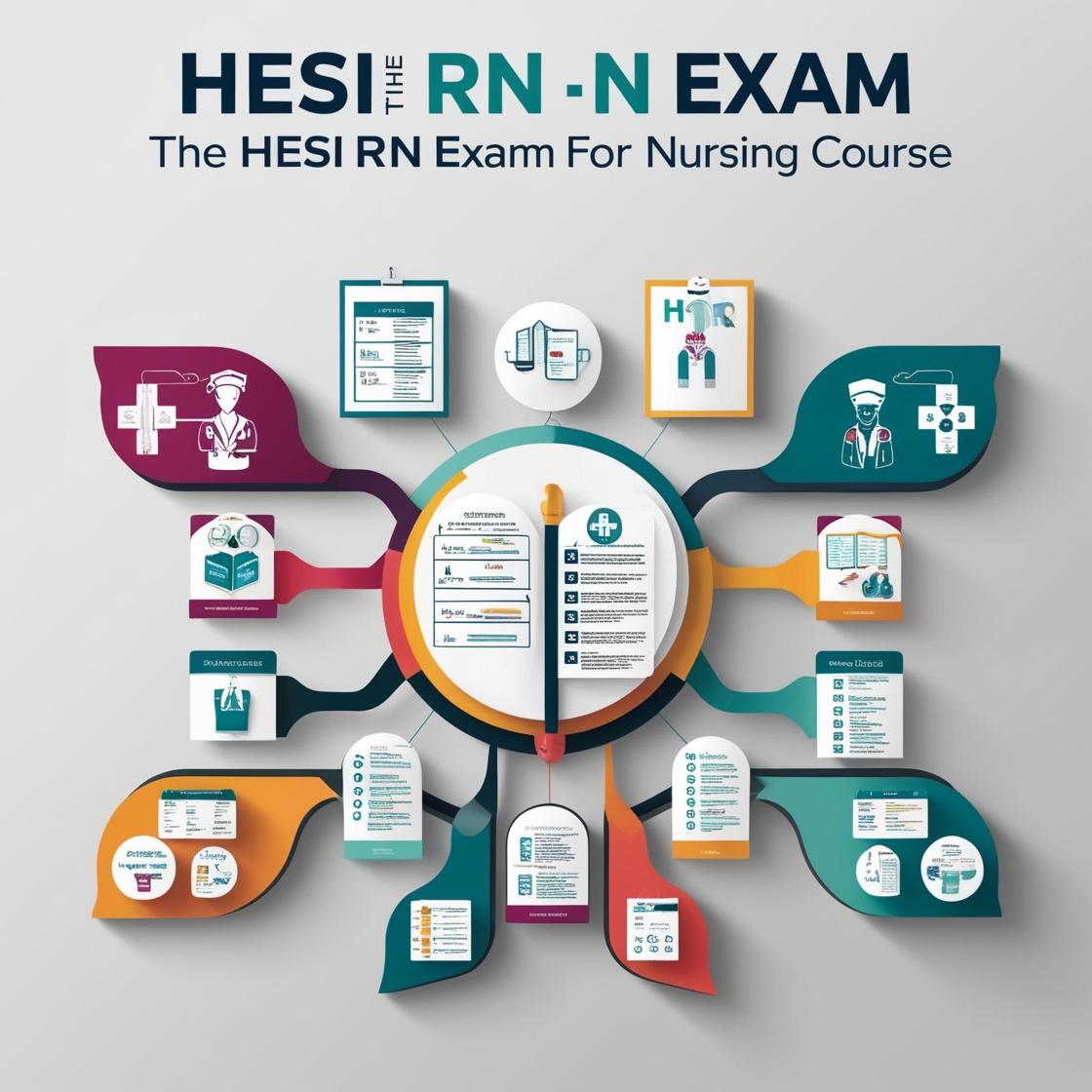HESI RN
HESI Fundamentals Quizlet
1. The nurse is preparing to administer 2 units of packed red blood cells (PRBCs) to a client. Which action should the nurse implement to ensure the client’s safety?
- A. Obtain informed consent from the client for the PRBC transfusion
- B. Review the client’s medical history for a history of transfusion reactions
- C. Assess the client’s baseline vital signs before starting the transfusion
- D. Verify the blood type and crossmatch with another licensed nurse
Correct answer: D
Rationale: Verifying the blood type and crossmatch with another licensed nurse is crucial to prevent transfusion reactions and ensure the client's safety. This step helps confirm that the correct blood type is being transfused to the client, reducing the risk of adverse reactions and promoting safe care. Obtaining informed consent (Choice A) is important but not directly related to ensuring the safety of the transfusion. Reviewing the client's medical history for transfusion reactions (Choice B) is relevant but not as crucial as verifying the blood type and crossmatching. Assessing baseline vital signs (Choice C) is a routine practice before transfusion but ensuring the correct blood type is a higher priority.
2. A female client’s significant other has been at her bedside providing reassurances and support for the past 3 days, as desired by the client. The client’s estranged husband arrives and demands that the significant other not be allowed to visit or be given condition updates. Which intervention should the nurse implement?
- A. Obtain a prescription from the healthcare provider regarding visitation privileges
- B. Request a consultation with the ethics committee for resolution of the situation
- C. Encourage the client to speak with her husband regarding his disruptive behavior
- D. Communicate the client’s wishes to all members of the multidisciplinary team
Correct answer: B
Rationale: In a situation where a client's estranged husband demands to restrict the visitation of the significant other, it is essential to prioritize the client's wishes while addressing the conflict. Requesting a consultation with the ethics committee is appropriate as it allows for a comprehensive and impartial resolution, ensuring the client's autonomy and well-being are upheld. Option A is incorrect because visitation privileges are not solely determined by a healthcare provider's prescription in this scenario. Option C may not be appropriate as it puts the client in a potentially uncomfortable or unsafe position. Option D, while important, does not directly address the conflict between the estranged husband and the significant other.
3. The mental health nurse plans to discuss a client's depression with the health care provider in the emergency department. There are two clients sitting across from the emergency department desk. Which nursing action is best?
- A. Only refer to the client by gender.
- B. Identify the client only by age.
- C. Avoid using the client's name.
- D. Discuss the client another time.
Correct answer: D
Rationale: The best nursing action is to discuss the client another time. When discussing a client's confidential information, it is essential to ensure privacy and confidentiality. Given the presence of other clients in the immediate vicinity, it is inappropriate to discuss personal details about a client's condition openly. Waiting for a more private setting is crucial to uphold the client's right to privacy and confidentiality. Choices A, B, and C are not appropriate because referring to the client only by gender, age, or avoiding the client's name does not address the issue of discussing confidential information in a public setting, which compromises the client's privacy and confidentiality.
4. When preparing to insert an indwelling urinary catheter, the nurse applies sterile gloves and then tests the catheter balloon for patency. What action should the nurse implement next?
- A. Place a sterile drape under the client's buttocks.
- B. Instruct the client to inhale and then exhale slowly.
- C. Discard the gloves and apply new sterile gloves.
- D. Apply a sterile lubricant to the end of the catheter.
Correct answer: D
Rationale: After testing the catheter balloon for patency, the nurse should proceed to apply a sterile lubricant to the end of the catheter. This lubrication helps facilitate the insertion of the catheter smoothly. Placing a sterile drape under the client's buttocks should have been done prior to this step. Discarding the gloves and applying new sterile gloves is not necessary at this point in the procedure. Instructing the client to inhale and exhale slowly is not part of the immediate steps for inserting an indwelling urinary catheter.
5. A client is admitted with a diagnosis of heart failure. Which dietary instruction should the nurse provide?
- A. Increase fluid intake to 3 liters per day.
- B. Limit sodium intake to 2 grams per day.
- C. Avoid foods high in potassium.
- D. Increase protein intake to promote healing.
Correct answer: B
Rationale: Limiting sodium intake to 2 grams per day (B) is a crucial dietary instruction for clients with heart failure. It helps manage fluid retention and reduces the workload on the heart. Excessive sodium can lead to fluid retention, worsening heart failure symptoms. Increasing fluid intake (A) can further exacerbate fluid overload in heart failure patients. Avoiding foods high in potassium (C) is not necessary unless the client has hyperkalemia; in heart failure, potassium restriction is not a primary dietary concern. Increasing protein intake (D) is not the priority for heart failure management; focusing on sodium restriction is more beneficial.
Similar Questions

Access More Features
HESI RN Basic
$69.99/ 30 days
- 50,000 Questions with answers
- All HESI courses Coverage
- 30 days access @ $69.99
HESI RN Premium
$149.99/ 90 days
- 50,000 Questions with answers
- All HESI courses Coverage
- 30 days access @ $149.99
